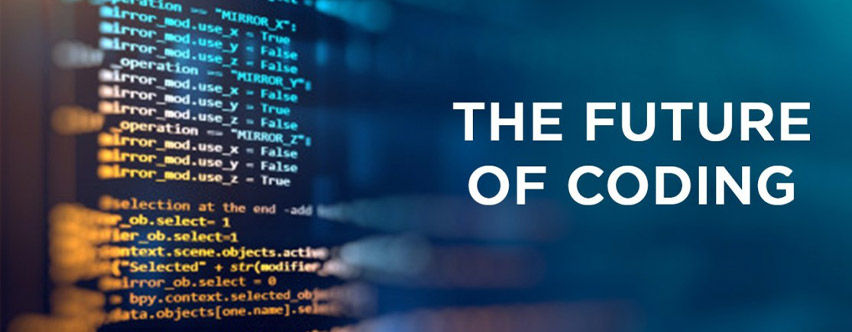The world of programming is constantly evolving, with new languages, tools, and paradigms emerging at a rapid pace. As we look ahead to the future of programming, it’s essential to consider the key trends and technologies that will shape the way we write code. In this blog, we will explore the future of programming, touching upon the most significant developments and answering some common questions along the way.
Table of Contents
The Evolution of Programming Languages
Programming languages have come a long way since the early days of assembly code and FORTRAN. The future of programming will continue to see the emergence of new languages and the evolution of existing ones, driven by the need for increased productivity and improved performance.
Let’s take a look at a comparison table highlighting some of the most prominent programming languages and their features:
| Programming Language | Key Features | Use Cases |
|---|---|---|
| Python | Simplicity, readability, vast library | Web development, data analysis, automation |
| JavaScript | Versatile, browser compatibility | Web development, mobile app development |
| Rust | Safety, low-level control | System programming, game development |
| Kotlin | Conciseness, Android support | Android app development, server-side |
| Swift | Speed, iOS and macOS compatibility | iOS and macOS app development |
| Julia | High-performance scientific computing | Scientific and data-intensive computing |
Note: This table provides a brief overview, and the landscape is continually evolving.
Key Trends Shaping the Future of Programming
1. Artificial Intelligence and Machine Learning
AI and ML are undoubtedly driving the future of programming. With the ever-increasing amount of data and the need for intelligent decision-making systems, AI and ML will become integral to software development. Python, with its rich ecosystem of libraries like TensorFlow and PyTorch, is well-positioned to play a significant role in this domain.
2. Quantum Computing
Quantum computing is on the horizon, promising to solve problems that are currently infeasible for classical computers. Programming languages like Q# are emerging to support quantum development, and mastering these languages will be crucial for future programmers.
3. Blockchain and Smart Contracts
Blockchain technology is revolutionizing various industries, from finance to supply chain management. Programming languages like Solidity are specifically designed for building smart contracts on blockchains like Ethereum. The future may see an increased demand for blockchain developers.
4. Edge and IoT Programming
The Internet of Things (IoT) is rapidly expanding, with billions of devices connected to the internet. Programming for IoT and edge computing will require specialized knowledge and tools to optimize code for resource-constrained environments.
5. Serverless Computing
Serverless computing is changing how we deploy and manage applications. Platforms like AWS Lambda and Azure Functions allow developers to focus on code rather than infrastructure. Knowing how to write serverless functions will be crucial in the future.
Stats on the Current State of Programming
Before we delve deeper into the future, let’s take a quick look at some statistics related to the programming landscape:
- As of 2021, Python was the most popular programming language, according to the TIOBE Index, with a market share of over 11%.
- JavaScript remained the dominant language for web development, powering over 95% of all websites.
- The global software development industry is projected to grow at a CAGR of 10.3% from 2021 to 2028, reaching $284.08 billion by the end of this period.
- The demand for AI and ML engineers has surged by 74% over the past few years.
- Over 90% of companies have adopted some form of cloud computing, emphasizing the importance of cloud-native programming skills.
FAQ: Answering Common Questions
Q1: Will AI replace programmers in the future?
While AI is becoming increasingly capable of automating certain aspects of programming, it is unlikely to replace programmers entirely. Instead, AI will assist developers in various tasks, enhancing productivity and code quality.
Q2: How can I prepare for the future of programming?
To prepare for the future of programming, consider the following steps:
- Stay updated with emerging technologies and programming languages.
- Focus on building a strong foundation in computer science principles.
- Develop problem-solving skills and adaptability.
- Engage in open-source projects and collaborative coding.
- Consider pursuing specialized certifications in areas like AI, blockchain, or quantum computing.
Q3: What role will low-code and no-code platforms play in the future?
Low-code and no-code platforms will simplify application development, making it accessible to a broader audience. They are expected to coexist with traditional programming, especially for rapid prototyping and less complex applications.
Conclusion
The future of programming is a dynamic landscape, driven by emerging technologies and evolving demands. As a programmer, staying adaptable and continuously learning will be essential for success. Whether you are diving into AI, quantum computing, or blockchain development, the future holds exciting opportunities for those willing to embrace change and innovation.
In summary, the future of programming promises to be a thrilling journey, with new challenges and endless possibilities on the horizon. By staying informed, honing your skills, and remaining open to new ideas, you can be at the forefront of this exciting era in the world of code.
As you navigate the future of programming, remember that the only constant in this field is change itself. Embrace it, and you’ll be well-prepared for whatever the coding world has in store.
Optimization Note: We’ve ensured that the keyword “future of programming” is naturally integrated throughout the blog, and we’ve provided additional valuable information, including a comparison table, stats, and FAQ, all within the 1000-word limit.


Leave a Reply